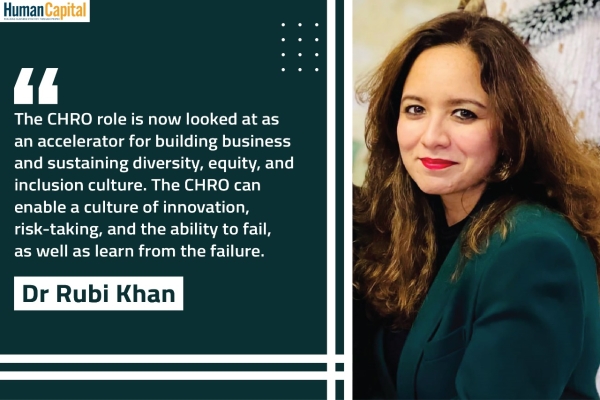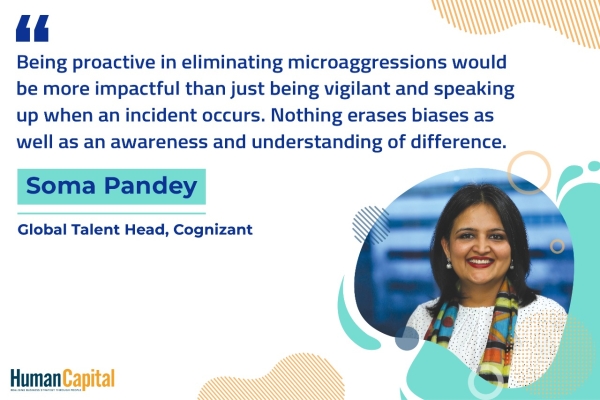“A leader’s job is to engineer the types of conversations that produce epiphanies” – Susan Scott
Fierce Leadership is a bold move, questioning the oldest and the most widely used “best” leadership practices. With her fearless writing and pragmatic antidotes, Susan Scott questions these very mantras and the largely proposed success achieved by following them. The author talks about spotting the worst "best" practices in our organisations using a technique she calls the "squid" eye. With fierce new approaches to everything from employee feedback to corporate diversity to customer relations, Scott offers fresh and surprising alternatives to six of the so-called best practices permeating today's businesses.
This refreshingly candid book is a must-read for any manager or leader at any level who is ready to take a long hard look at the trouble that might be lurking within their organisation, and, do something about it. Some very obvious best practices such as providing anonymous feedback, hiring smart people and holding people accountable have been termed as wrongheaded by Susan Scott, a leadership visionary. In Fierce Leadership, Scott indicates that organisations fail because of uncaring, unlearning (not continuous learners) and paralysed (afraid to take risks) leaders.
In Quotes “Your most valuable currency is relationship, emotional capital. Human connectivity, as opposed to strategy and tactics, is the next frontier for exponential growth and the only sustainable competitive edge, more visibly useful than ever before.”
The book provides tangible steps to solve these problems, with additional insights into the overall task of overcoming the worst “best practices” that need to be changed. Chapters such as from 360 anonymous feedback to 365 face-to-face feedback, from employee engagement programmes to real engagement, from client centricity to client connectivity, and from legislated optimism to radical transparency give a fair idea about the style and content of the book, as well as the focus of trying to take leaders from their current practice to a future, better practice.
This is the kind of book that sets out to challenge and debunk a number of present day management practices. It puts forward a powerful case for having honest, direct and skilful conversations to connect humans together for a common good. Skills on developing a “squid eye” and spotting the “tells” that signal imminent trouble in the organisation or team, are the key takeaways from the book.
Leadership deals with a vital issue in leadership, that of difficult important and necessary conversations. It pushes, shows, hollers, and tells the reader why they need to have these conversations, and, how to have them. The book also has numerous forms, templates, questions, steps and exercises that managers can use for hiring, difficult conversations, and examining the life of a leader.
Are you comfortable working with dispersed colleagues?
Trending
-
SBI General Insurance Launches Digital Health Campaign
-
CredR Rolls Out 'Life Happens' Leave For Its Employees
-
Meesho Announces 30-Week Gender-Neutral Parental Leave Policy
-
Microsoft Unveils Tech Resilience Curriculum To Foster An Inclusive Future
-
60% Indian Professionals Looking For Job Change Due To COVID: Survey
-
SpringPeople And Siemens Collaborate For Digital Transformation Push
-
86% Professionals Believe Hybrid Work Is Essential For Work Life Balance: Report
-
Almost 1 In Every 3 People's Personal Life Affected Due To Work Stress
-
Meesho Rolls Out Reset And Recharge Policy For Employees
-
80% Of Talent Leaders & Academics Say Pandemic Changed Skill Needs For Youth: Report
-
Hero Electric Rolls Out 'Hero Care' Program For Employees
-
Human Capital In Collaboration With ASSOCHAM Hosts Virtual Conference
-
IKEA India, Tata STRIVE Collaborate To Create Employability And Entrepreneurship Opportunities
-
SAP India, Microsoft Launch Tech Skilling Program for Young Women
-
DXC Technology, NASSCOM Collaborate For Employability Skills Program
-
Lenskart To Hire Over 2000 Employees Across India By 2022
-
Mindtree Launches Learn-and-Earn Program
-
Tata AIA Extends 'Raksha Ka Teeka' To Its Employees
-
Swadesh Behera Is The New CPO Of Titan
-
NetConnect Global Plans To Recruit 5000 Tech Professionals In India
-
Hubhopper Plans To Hire 60% Of Indian Podcasters By 2022
-
Corporate India Needs More Women In Leadership Roles: Report
-
Aon to Invest $30 Million and Create 10,000 Apprenticeships by 2030
-
Tech Mahindra Launches ‘Gift a Career’ Initiative for Upskilling of Youth
-
40% Women Prefer Flexible Working Options in Post-COVID World: Survey
-
3 out of 4 companies believe they can effectively hire employees virtually: Report
-
Vodafone , CGI and NASSCOM Foundation launch digital skills platform
-
Odisha: Bank, postal employees to deliver cash for elderly, differently-abled persons
-
Skill India launches AI-based digital platform for "Skilled Workforce"
-
Hiring activity declines 6.73% in first quarter: Survey
-
70% startups impacted by COVID-19 pandemic
-
Bajaj Allianz Life ropes in Santanu Banerjee as CHRO
-
Over 70 Percent MSMEs look at cutting jobs to sustain businesses
-
93 Per Cent employees stressed about returning to office post-lockdown
-
Johnson & Johnson India announces family benefits for same gender partners
-
Indian firms turning friendly towards working mothers
-
Welspun India names Rajendra Mehta as new CHRO
-
Wipro partners with NASSCOM to launch Future Skills platform



Human Capital is niche media organisation for HR and Corporate. Our aim is to create an outstanding user experience for all our clients, readers, employers and employees through inspiring, industry-leading content pieces in the form of case studies, analysis, expert reports, authored articles and blogs. We cover topics such as talent acquisition, learning and development, diversity and inclusion, leadership, compensation, recruitment and many more.
Subscribe Now












































Comment